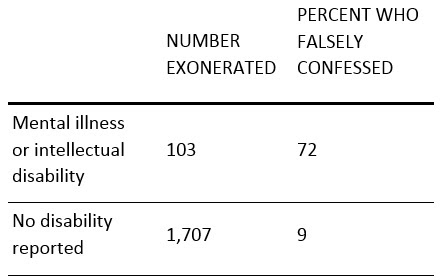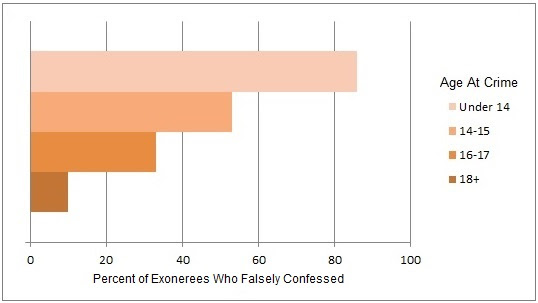Modifying Techniques When Questioning Juveniles and Individuals with Mental or Psychological Disabilities
All sorts of people falsely confess, but two groups are particularly vulnerable: young suspects and those with mental disabilities.

In 1983, for example, Earl Washington, a 22-year-old black man with an IQ of about 69, was arrested in Culpeper, Virginia, for burglary and malicious wounding. Over two days of questioning, Washington "confessed" to five separate crimes, four of which were not pursued because his confessions did not match the actual crimes and the victims could not identify Washington as the criminal.
Washington's fifth confession, however, was to a murder, that of Rebecca Lynn Williams. His initial version "before police officers cleaned it up" was riddled with errors. He did not know the race of the victim (white), the address where she was killed, or that she was raped. Nonetheless, Washington was convicted and sentenced to death in January 1984. He was exonerated by DNA 16 years later, in 2000. (We testified on behalf of Washington for the Innocence Project)
Overall, of exonerees with reported mental illness or intellectual disability, 72 percent had confessed.

Young suspects fared almost as badly. Forty percent of exonerees who were under 18 at the time of the crime falsely confessed, including 53 percent of 14- and 15-year olds, and 86 percent of the few who were 13 years old or younger. By comparison, only 7 percent of adult exonerees without reported mental disabilities falsely confessed.